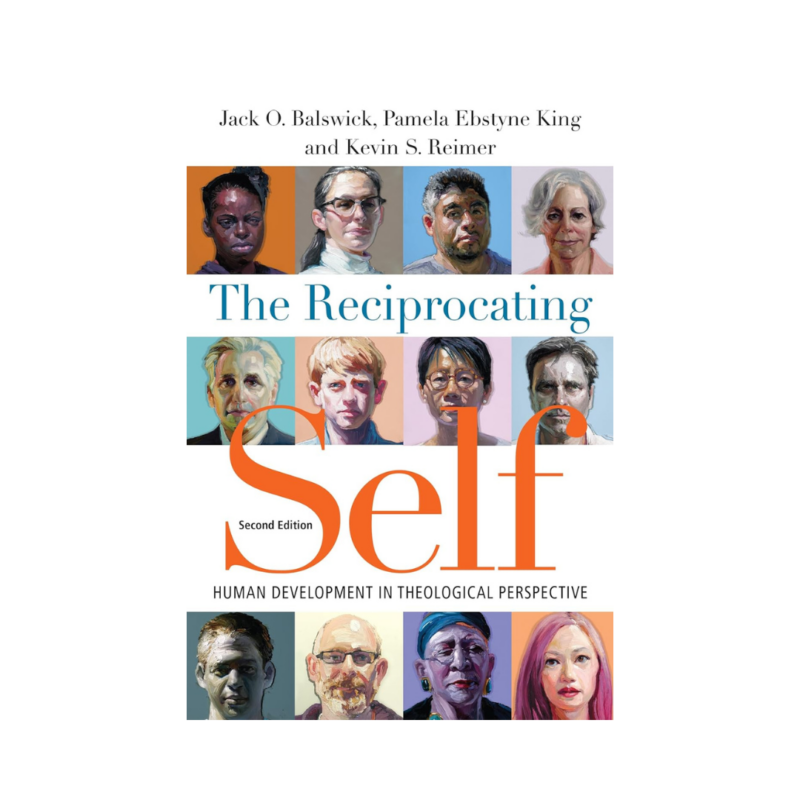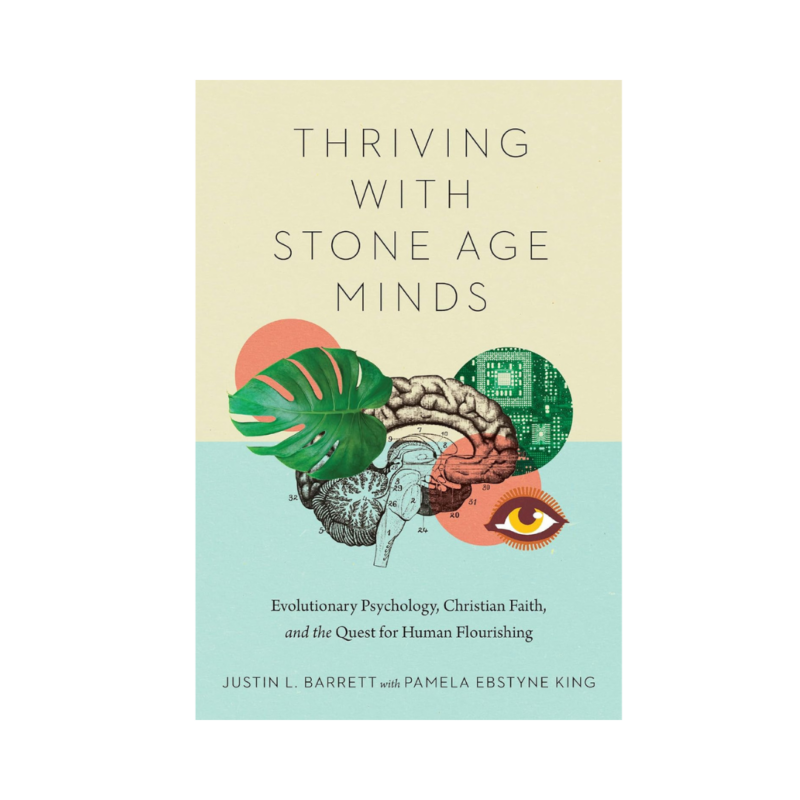Citation
Barrett, J. L. (2021). Thriving with Stone Age Minds: Evolutionary Psychology, Christian Faith, and the Quest for Human Flourishing. InterVarsity Press.
About the Author
Justin L. Barrett (PhD, Cornell University) is the founder and president of Blueprint 1543 and adjunct professor of psychology at Fuller Theological Seminary, where he was formerly director of the Thrive Center for Human Development and chief project developer in the Office for Science, Theology, and Religion Initiatives. His books include Born Believers and Cognitive Science, Religion, and Theology.
Pamela Ebstyne King (PhD, Fuller Theological Seminary) is the executive director of the Thrive Center and the Peter L. Benson Professor of Applied Developmental Science in the School of Psychology at Fuller Theological Seminary. She is co-author of The Reciprocating Self and co-editor of The Handbook of Spiritual Development in Childhood and Adolescence.
About the Book
What does God’s creation of humanity through the process of evolution mean for human flourishing? The emerging field of evolutionary psychology remains controversial, perhaps especially among Christians. Yet according to Justin Barrett and Pamela Ebstyne King, it can be a powerful tool for understanding human nature and our distinctively human purpose.
Thriving with Stone Age Minds provides an introduction to evolutionary psychology, explaining key concepts like hyper-sociality, information gathering, and self-control. Combining insights from evolutionary psychology with resources from the Bible and Christian theology, Barrett and King focus fresh attention on the question, What is human flourishing? When we understand how humans still bear the marks of our evolutionary past, new light shines on some of the most puzzling features of our minds, relationships, and behaviors.
One key insight of evolutionary psychology is how humans both adapt to and then alter our environments, or “niches.” In fact, we change our world faster than our minds can adapt―and then gaps in our “fitness” emerge. In effect, humans are now attempting to thrive in modern contexts with Stone Age minds. By integrating scientific evidence with wisdom from theological anthropology, we can learn to close up nature-niche gaps and thrive, becoming more what God has created us to be.
BioLogos Books on Science and Christianity invite us to see the harmony between the sciences and biblical faith on issues including cosmology, biology, paleontology, evolution, human origins, the environment, and more.
Editorial Reviews
Continue Exploring

Thriving
The Reciprocating Self: A Telos of Human Development
Pamela King uses teleology to further understand the ends and means of human development and thriving.

Thriving
The Reciprocating Self: Human Development in Theological Perspective
Citation Balswick, J. O., King, P. E., & Reimer, K. S. (2016). The reciprocating self: Human development in theological perspective. InterVarsity Press. Abstract On the basis of a theologically grounded understanding of the nature of persons and the self, Jack O. Balswick, Pamela Ebstyne King and Kevin S. Reimer present a model of human development that ranges across all of life’s stages: infancy, childhood, adolescence, young adulthood, middle adulthood and elder adulthood. They do this by drawing on a biblical model of relationality, where the created goal or purpose of human development is to become a reciprocating self―fully and securely related…

Thriving
Neurodiversity and Thriving: A Case Study in Theology-Informed Psychology
Citation Leidenhag, J., & King, P. E. (2023). Neurodiversity and Thriving: A Case Study in Theology-Informed Psychology. Studies in Christian Ethics, 36(4), 827–843. https://doi.org/10.1177/09539468231187784 Abstract The concept of ‘neurodiversity’ to speak of conditions such as autism, dyslexia, and others as differences, not disorders or pathologies, relies on a robust account of human flourishing that can incorporate these conditions. Conceptions of illness and well-being are always partially theological, whilst also having to be grounded in the empirical realities of the present time. Therefore, positive developmental psychology is a particularly apt field for developing a theology-informed psychology. This article argues that recent…


